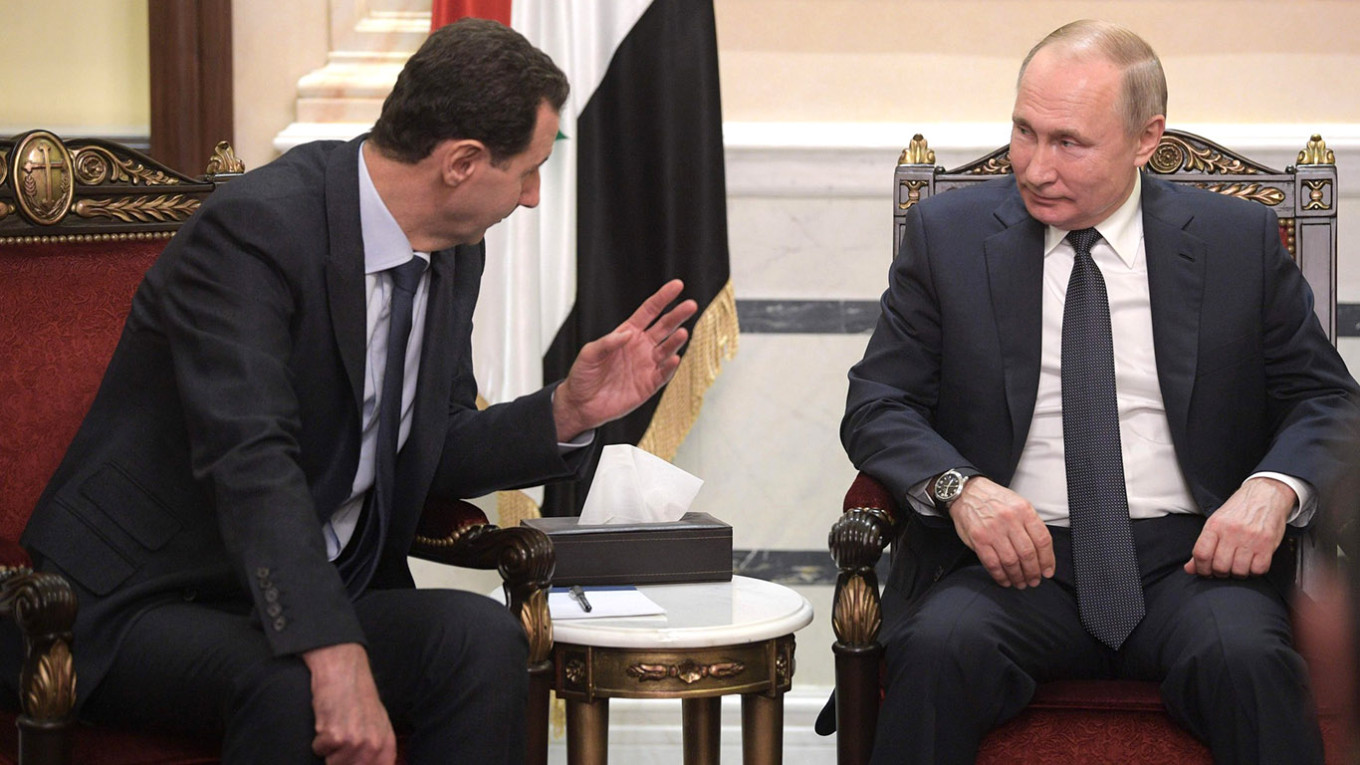President Vladimir Putin personally granted asylum to ousted Syrian president Bashar al-Assad and his family, the Kremlin said Monday.
“Such decisions can’t be taken without the head of state. It was his decision,” Putin’s spokesman Dmitry Peskov told reporters, according to the state-run TASS news agency.
Peskov declined to comment on Assad’s current whereabouts and said Putin was not scheduled to meet him at the moment.
"As for President Assad's whereabouts, I've got nothing to tell you," Peskov told journalists, adding: "What happened [with Assad’s toppling] has surprised the whole world and, in this case, we are no exception."
On Sunday, Russian news agencies cited anonymous Kremlin sources as saying that Assad and his family were in Moscow after Islamist-led rebels entered Damascus, ending almost six decades of his family’s rule.
Mikhail Ulyanov, Russia’s envoy to international organizations in Vienna, later confirmed the reports.
“Russia does not betray its friends in difficult situations,” Ulyanov wrote on X after midnight Monday.
Russia and Iran are Assad’s key allies, with the Russian military entering the Syrian civil war in 2015 to help Assad crush the opposition and the Islamic State terrorist group.
Russia said it was not involved in Assad’s decision to flee and order a peaceful transfer of power to the rebels.
Kremlin spokesman Peskov said Monday that the future of Russia’s Hmeimim airbase and Tartus naval facility would be subject to discussions with Syria’s new rulers.
Russia has requested a closed-door UN Security Council session on Syria for Monday afternoon.
“The depth and implications of the recent developments in Syria have yet to be understood,” Dmitry Polyansky, Russia’s first deputy permanent representative to the UN, wrote on Telegram.
AFP contributed reporting.
A Message from The Moscow Times:
Dear readers,
We are facing unprecedented challenges. Russia's Prosecutor General's Office has designated The Moscow Times as an "undesirable" organization, criminalizing our work and putting our staff at risk of prosecution. This follows our earlier unjust labeling as a "foreign agent."
These actions are direct attempts to silence independent journalism in Russia. The authorities claim our work "discredits the decisions of the Russian leadership." We see things differently: we strive to provide accurate, unbiased reporting on Russia.
We, the journalists of The Moscow Times, refuse to be silenced. But to continue our work, we need your help.
Your support, no matter how small, makes a world of difference. If you can, please support us monthly starting from just $2. It's quick to set up, and every contribution makes a significant impact.
By supporting The Moscow Times, you're defending open, independent journalism in the face of repression. Thank you for standing with us.
Remind me later.






